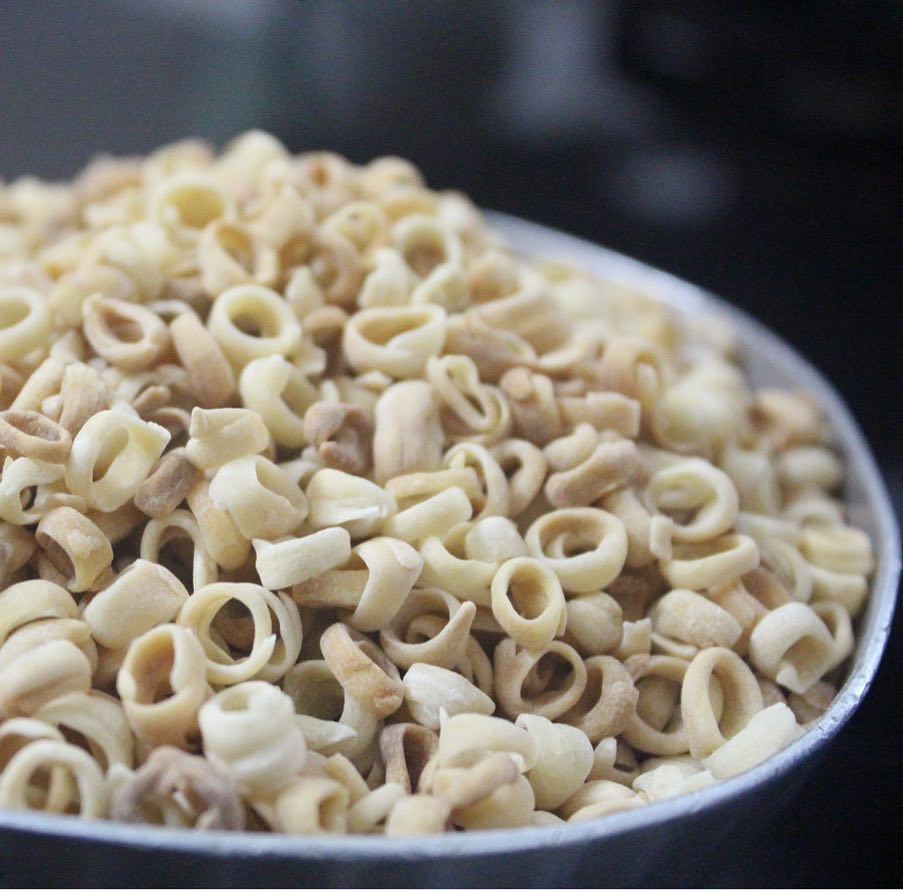
“Centuries ago, wheat was ground into flour using grinding stones at home. The concept of refined flour didn’t exist, but the women unknowingly developed the technique of obtaining refined flour by sifting the coarse flour multiple times to get a finer consistency of flour that could be stretched and shaped into desired forms. For saravle the “fine” flour so obtained was made into a dough. The dough was then stretched out with hand into millions of miniature, thick threads that were then woven around a light-weighted wooden stick called ‘sirkand‘ and allowed to dry in the summer sun until hard. The entire dehydration process shrunk the dough causing the dough threads to easily come off the stick as rings. These were then further dried until completely firm, followed by a light roasting before being stocked away for use throughout the year until next summer.” Saher Khanzada (@thebombayglutton), a food writer and researcher with a special interest in Kokani Muslim cuisine, writes about Saravle, a traditional hand-rolled pasta in this year’s Diwali Pangat. Read her fascinating piece on www.angatpangat.in (link in bio). #saravle #pasta #thistooisindianfood #thistooismaharashtriancuisine #maharashtrian #marathifood #maharashtriancuisine #konkan #konkanimuslim #kokanimuslimcuisine #middleeasterninfluences #handmadepasta #diwalipangat #angatpangat #revivingthediwaliank #digitalmagazine #emagazine
 Kokani.me Kokani.me
Kokani.me Kokani.me

